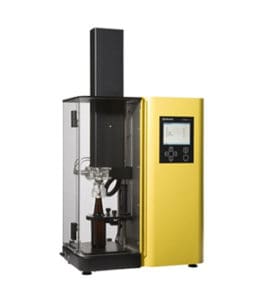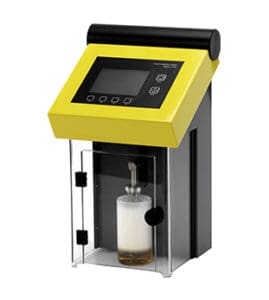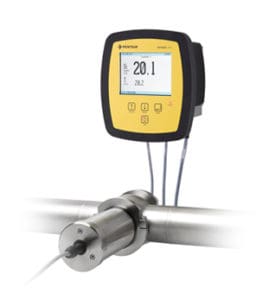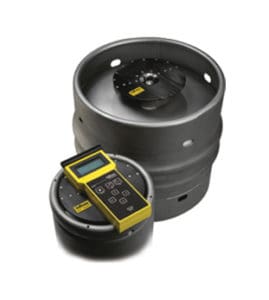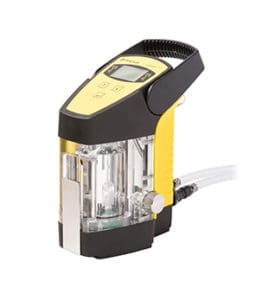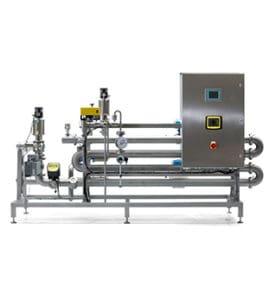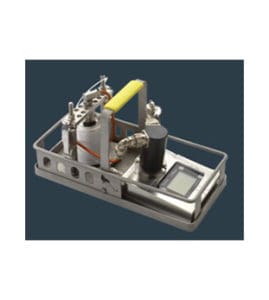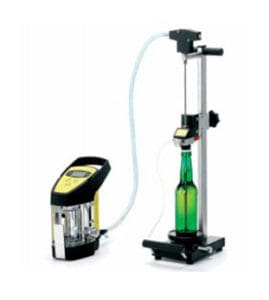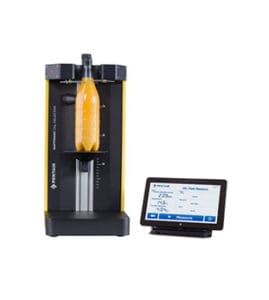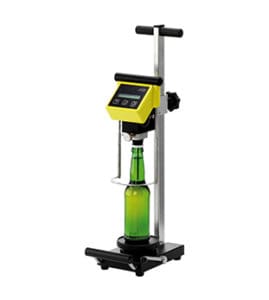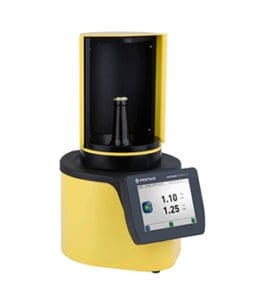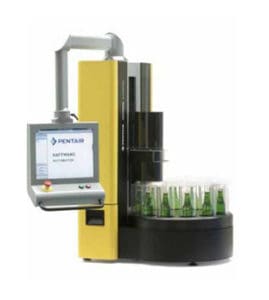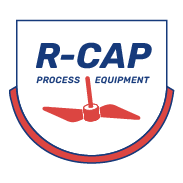PENTAIR HAFFMANS BREWING EQUIPMENT
PENTAIR HAFFMANS BREWING EQUIPMENT FOR QUALITY CONTROL
R-CAP Process Equipment is a preferred supplier for Pentair Haffmans. Including CO2/O2/TPO/Turbidity/Foam Meters, Pasteurization & Washing, and Carbonation Systems.
Interested in particular Pentair Haffmans meters, monitors, analyzers or control systems?
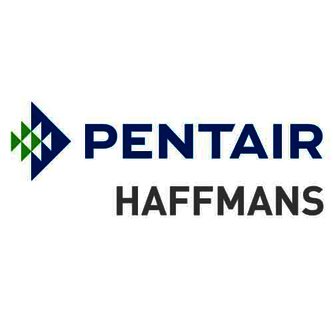
Types of Brewing Quality Control
CO2 Management
Elevate your beer production with our CO2 management system—produced by industry-leading brand Pentair Haffmans—to deliver superior taste and beer quality. This system guarantees consistency in taste and carbonation while maintaining beverage-grade CO2 levels for safe consumption.
Convenient on-site CO2 management extends your beer’s shelf life and ensures reliable best-by dates, preserving flavor and enhancing customer satisfaction. With precise measurements and better product control, you can enrich the overall customer experience.
Our CO2 management covers every stage—from fermentation to packaging and laboratory testing—and caters to breweries of all sizes, including distilleries, cideries, wineries, and natural and sparkling water producers.
O2 Management
Enhance the longevity and taste stability of your carbonated beverages with our O2 management system, made possible by Pentair Haffmans. By meticulously measuring and regulating oxygen levels, we can maximize your product’s shelf life to maintain taste consistency from start to finish.
Preventing excess oxygen from compromising the integrity of carbonated beverages like beer is crucial for preserving its flavor and making sure your drink tastes just as great on the sell-by date as it did when it was bottled. This level of consistency is valued by customers and can significantly enhance their drinking experience. O2 management is a vital process that takes place during aeration, fermentation, filtration, packaging, and laboratory testing.
Foam Stability
Foam stability is essential in the brewing industry. It plays a crucial role in enhancing the taste and aesthetics of beer. Consumers want a beer that not only delivers on flavor but also allows for a satisfying pour with a generous and long-lasting head of foam. Achieving the right foam balance is a key aspect of crafting a memorable beer experience.
Turbidity
Measuring turbidity is a valuable tool for improving your product’s visual appeal and predicting its shelf life. Turbidity levels can be measured at various stages, including before fermentation, before and after filtration, and during laboratory testing. This process involves detecting light dispersed by particles in the liquid, which allows breweries to learn about the clarity and quality of their brew, ultimately contributing to a better end product.
Pasteurization
Pasteurization offers a range of benefits to carbonated beverage producers. It provides optimal process control, ensuring maximum flavor retention and shelf life by reducing microorganisms in beer and other carbonated beverages. This process not only minimizes product loss but also optimizes energy consumption, making it a sustainable choice. With pasteurization, you can preserve your product’s taste, smell, color, and brightness, resulting in a high-quality beverage that holds up from production to consumption.
Carbonation
Controlling carbonation is necessary to achieve the perfect beer. With CO2 management, you can regulate your product’s carbonation level, resulting in a balanced taste and enhanced freshness. Micro and craft breweries find simple carbonation units highly beneficial, while larger breweries require larger, automated systems to meet production demands.
Applications
CO2 management systems, O2 management systems, and other brewing equipment are effective for both alcoholic and nonalcoholic beverages. Our customers use this equipment for quality control of various products, including:
- Beer
- Cider
- Carbonated Beverages
Why Is Quality Control Important for Beer Production?
1. Consistency
Customers often choose beer brands based on how much they enjoy the beer’s flavor, aroma, and overall tasting experience. They anticipate a consistent and enjoyable taste, whether it’s a hoppy IPA, a rich stout, or a refreshing lager.
Breweries rely on quality control measures to maintain this anticipated uniformity across batches. This process involves closely monitoring and managing various factors that can influence the final product, like ingredient selection, brewing methods, fermentation conditions, and packaging techniques. By adjusting these elements, managers can reduce variations and produce a beer with consistent qualities, giving their customers a consistently enjoyable experience every time they buy.
2. Customer Satisfaction
Satisfied customers are more likely to make a future purchase and recommend your beer to people they know, boosting sales and revenue. On the flip side, a negative experience can lead customers to buy from your competitors instead, causing you to lose revenue and market share.
To meet consumer safety and quality standards, safety inspections are essential. These inspections involve microbiological testing and monitoring various parameters to detect potential contaminants or spoilage issues that could pose health risks. By maintaining product quality and safety, breweries like yours can build trust and gain loyalty among customers.
3. Reputation
In a competitive market, breweries rely on their reputation to stand out and attract consumers. Consistently producing high-quality products establishes trust and fosters a loyal customer base that continues to buy and recommends the brand to others.
Beer enthusiasts have many choices when it comes to selecting a product. They consider past experiences, recommendations, and a company’s overall reputation. If a brand has a reputation for making quality beer, customers are more likely to buy from them repeatedly instead of their competitors. Maintaining this reputation requires investments in regular sensory assessments, laboratory testing, and strict quality standards throughout the brewing process.
4. Cost
Effective quality control techniques help breweries detect and resolve issues, helping them avoid producing mediocre beer and reducing financial losses from wasted raw materials, labor, and energy.
These techniques also optimize the use of raw materials. Routine checks on ingredients like adjunct malts and hops ensure the right amount is used in every batch, enhancing consistency and reducing both waste and costs associated with overuse or underuse.
Quality control helps breweries identify areas of inefficiency. Data analysis of quality metrics can reveal underlying problems—like consistent off-flavors or carbonation discrepancies—which indicate equipment or process issues. Addressing these problems improves the brewing process, minimizes error risks, and enhances overall productivity.
Making sure the final product meets certain criteria helps companies avoid product recalls, customer complaints, and returns. This prevents costly expenses related to recalls, customer compensation, and potential sales loss, safeguarding the company’s finances and brand reputation.
Achieve Optimal Quality Control With the Help of R-Cap Process Equipment
Enhance your production processes, improve product quality, and maximize your product’s shelf life with customized brewery equipment supplied by Pentair Haffmans. Whether you operate a small or large brewery, we have the equipment and industry expertise you need to improve processes and increase profits long-term. Contact our team today to see what equipment is right for you.

